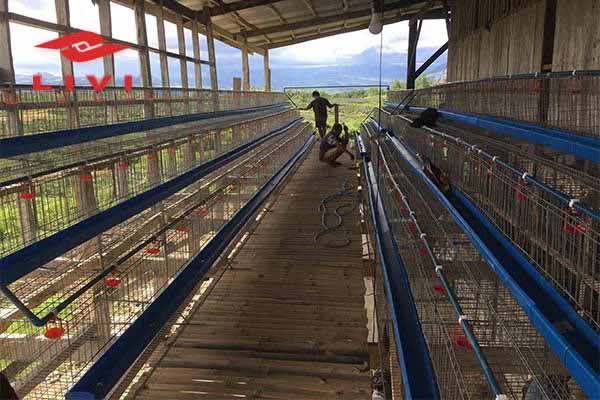What to Do If Ventilation in Chicken Farms in Kenya Is Poor
Time : 2025-07-24
When it comes to the well-being of your chickens and the efficiency of your chicken farm in Kenya, adequate ventilation is crucial. Poor ventilation can lead to numerous problems, including poor growth, health issues, and decreased egg production. As a leading poultry equipment manufacturer from China, Livi Mechanical Equipment, we understand the challenges you might face and are here to provide you with expert advice on what to do if ventilation in your chicken farm is poor.
Understanding the Importance of Ventilation in Chicken Farms
Ventilation is vital for several reasons:
1. Regulates Temperature: Poultry need a constant and appropriate temperature to thrive. Poor ventilation can lead to overheating or chilling, which negatively impacts their health.
2. Reduces Ammonia Levels: Ammonia is a byproduct of chicken droppings that can cause respiratory issues and eye irritation for your birds. Proper ventilation helps expel ammonia.
3. Improves Air Quality: Ensures a cleaner, healthier environment for your chickens, which reduces the risk of diseases.
4. Boosts Egg Production: Optimal ventilation contributes to increased egg production and healthier chickens.
Signs of Poor Ventilation
Before we dive into solutions, it’s important to identify signs of poor ventilation:
– Foul Odors: If you smell strong odors in the farm, it’s a clear sign that ammonia levels are high.
– Chickens Gasping: If you hear your chickens gasping or coughing, they may not be getting enough oxygen.
– Lethargy: Prolonged exposure to poor air quality can make your chickens lethargic and less productive.
– High Mortality Rate: Increased susceptibility to diseases and respiratory issues can lead to a higher mortality rate.
What to Do If Ventilation in Your Chicken Farm Is Poor
Now that you recognize the signs of poor ventilation, here’s what you can do to improve it:
1. Evaluate Current Ventilation System
Begin by inspecting your current ventilation system. Are there gaps, leaks, or inefficiencies? Sometimes, the issue may not be a lack of ventilation but rather improper distribution.
2. Increase Airflow
Poor airflow can be as harmful as a lack of air. Ensure that air moves evenly throughout the farm. Consider adding or modifying vents, fans, and wind tunnels to improve airflow.
– Vertical Airflow: Encourage vertical air movement to disperse warm air and ammonia away from the chickens.
– Tunnel Systems: Consider installing wind tunnels or tunnel systems for natural airflow. These can be effective for small to medium-sized farms.
3. Replace or Clean Air Filters
Dirty or clogged air filters can severely hinder ventilation. Regularly inspect and replace or clean filters to maintain optimal performance.
4. Monitor and Control Temperature
Temperature fluctuations can have a profound impact on poultry. Use thermostats and climate control systems to keep the temperature consistent.
5. Install Biofilters
Biofilters are designed to remove ammonia from the air. By installing biofilters, you can reduce the risk of respiratory issues and improve air quality.
6. Regular Maintenance
Poor ventilation often occurs due to neglect. Implement a regular maintenance schedule to ensure that your ventilation system is working efficiently.
7. Seek Professional Advice
If you’re unsure about how to improve ventilation, consult with an expert. As a leading poultry equipment manufacturer, Livi Mechanical Equipment can provide professional advice and assist with the installation of high-quality ventilation equipment.
Choosing the Right Ventilation Equipment
At Livi Mechanical Equipment, we offer a range of high-quality ventilation equipment tailored to meet the needs of your chicken farm in Kenya. Here are some key factors to consider when selecting the right equipment:
– Size and Layout: Ensure the equipment you choose is appropriate for the size and layout of your farm.
– Efficiency: Look for energy-efficient options that minimize costs while maintaining optimal conditions for your chickens.
– Quality: Invest in reliable, durable equipment that will stand the test of time.
– Customization: Our equipment can be customized to meet the specific needs of your farm.
Conclusion
Improving ventilation in your chicken farm in Kenya is essential for the health, productivity, and profitability of your operation. By recognizing the signs of poor ventilation and implementing the right solutions, you can create a healthier environment for your chickens and boost your farm’s success. As a trusted poultry equipment manufacturer, Livi Mechanical Equipment is committed to helping you achieve these goals.
—












